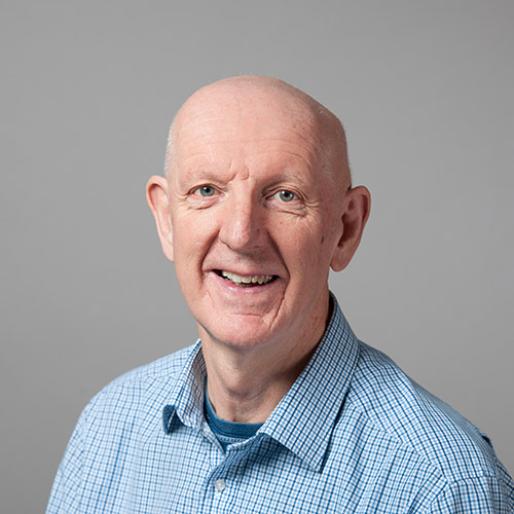The big picture: using wildflower strips for pest control
Adding crushed rocks to farm soils can accelerate carbon sequestration and boost productivity according to scientists attending Cereals for the first time in 2023.
Calcium and magnesium-rich silicate rocks ground into small particles of less than 2mm have been found to accelerate natural carbon dioxide (CO2) sequestration, and potentially improve crop production and soil health.
However, the efficacy of the process, the co-benefits to crops and soils, and field safety data for this new technology has never before been tested in the UK.
The Enhanced Rock Weathering – Greenhouse Gas Removal (ERW-GGR) Demonstrator programme will be the first to provide an integrated, whole-system assessment of the scientific, societal, and scalability opportunities for ERW deployment in UK agriculture.
With the potential to remove up to 45% of the UK's GGR net-zero target, it will be implemented on arable land and grassland that constitute 74% of the UK's utilised agricultural area, approximately 13 million hectares.
This innovative approach not only helps in achieving emissions reductions but also enhances soil productivity, replenishes soils with plant-essential mineral nutrients, increases crop resistance to pests and pathogens through greater silica uptake, and minimises soil nitrous oxide emissions.
"The goal is to transform this GGR technology into standard agricultural practices. This Demonstrator will pave the way for an exciting cross-disciplinary collaborative programme and shape the development of ERW-GGR in the UK," said the Project Lead, David Beerling of the University of Sheffield.
The project will be developed across three flagship field sites: Rothamsted Research's arable research facility in Harpenden and North Wyke grassland experimental platform in Devon, and the advanced Plynlimon Experimental Catchments in mid-Wales.
The ERW Demonstrator is not just a technological initiative. It is a comprehensive programme that integrates natural and social sciences, ensuring a balanced approach to addressing environmental benefits and public perceptions. Erin Roberts, a social scientist at Cardiff University who will be available at the Rothamsted stand to discuss the project, said that “the project aims to understand how a social license for ERW's large-scale operation in UK agriculture might be developed”.
"The ERW Demonstrator is a giant leap towards our net-zero carbon emissions target," said the arable site lead, Rothamsted’s Steve McGrath, who will also be on-site at Thoresby. "We believe that ERW's implementation across UK agriculture, combined with its potential co-benefits, will significantly contribute to the fight against climate change."
The Rothamsted stand is at 306 on the Cereals site.

Soil and Plant Scientist
Rothamsted Research is the longest-running agricultural research institute in the world. We work from gene to field with a proud history of ground-breaking
discoveries in areas as diverse as crop management, statistical interpretation and soil health. Our founders, in 1843, were the pioneers of modern
agriculture, and we are known for our imaginative science and our collaborative approach to developing innovative farm practice.
Through independent research, we make significant contributions to improving agri-food systems in the UK and internationally, with
economic impact estimated to exceed £3 bn in annual contribution to the UK economy. Our strength lies in our systems approach, which combines strategic research,
interdisciplinary teams and multiple partnerships.
Rothamsted is home to three unique National Bioscience Research Infrastructures which are open to researchers from all over the world:
The Long-Term Experiments,
Rothamsted Insect Survey and the
North Wyke Farm Platform.
We are strategically funded by the Biotechnology and Biological Sciences Research Council (BBSRC), with additional support from other national and
international funding streams, and from industry. We are also supported by the Lawes Agricultural Trust (LAT).
The Biotechnology and Biological Sciences Research Council is part of UK Research and Innovation, a non-departmental public body funded by a grant-in-aid
from the UK government.
BBSRC invests to push back the frontiers of biology and deliver a healthy, prosperous and sustainable future. Through our investments, we build and support a vibrant,
dynamic and inclusive community which delivers ground-breaking discoveries and develops bio-based solutions that contribute to tackling global challenges,
such as sustainable food production, climate change, and healthy ageing.
As part of UK Research and Innovation (UKRI), we not only play a pivotal role in fostering connections that enable the UK’s world-class research and innovation system
to flourish – we also have a responsibility to enable the creation of a research culture that is diverse, resilient, and engaged.
BBSRC proudly forges interdisciplinary collaborations where excellent bioscience has a fundamental role. We pioneer approaches that enhance the equality, diversity,
and inclusion of talent by investing in people, infrastructure, technologies, and partnerships on a global scale.
The Lawes Agricultural Trust, established in 1889 by Sir John Bennet Lawes, supports Rothamsted Research’s national and international agricultural science through the provision of land, facilities and funding. LAT, a charitable trust, owns the estates at Harpenden and Broom's Barn, including many of the buildings used by Rothamsted Research. LAT provides an annual research grant to the Director, accommodation for nearly 200 people, and support for fellowships for young scientists from developing countries. LAT also makes capital grants to help modernise facilities at Rothamsted, or invests in new buildings.